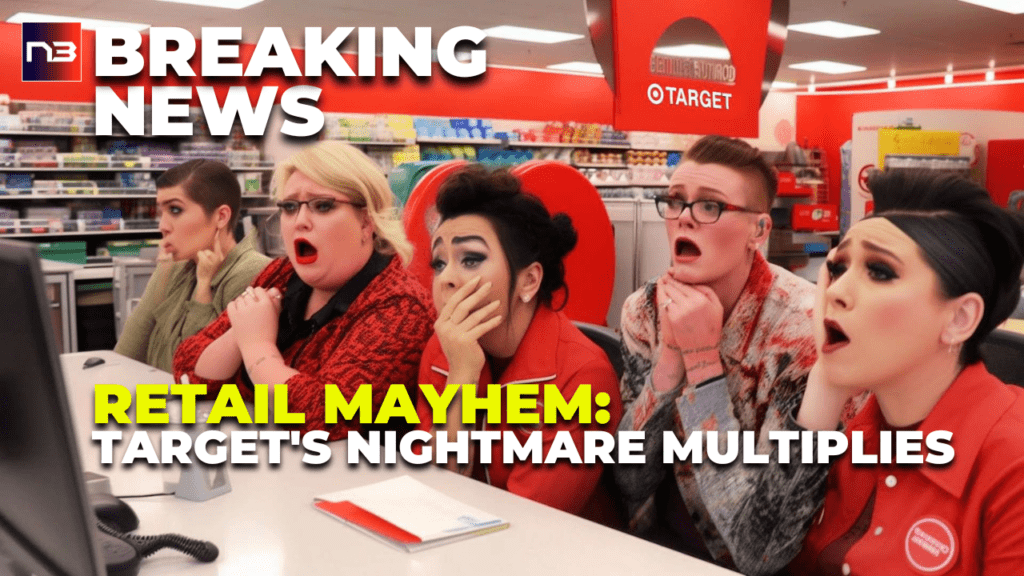Uncovered: Target’s risky gamble with divisive policies! An exclusive peek into the $12.5 billion fiasco that shook the retail industry. How far will political correctness cost? Stay tuned, the truth is even more shocking than you think.
Target is in turmoil, grappling with an epic downturn that’s erased a jaw-dropping $12.5 billion of its market cap in a mere eight sessions. This comes as the retail giant faces mounting criticism over its transgender-themed merchandise for children, raising serious questions about its marketing and hiring practices.


The company’s tumble has been nothing short of extraordinary. Its share price is languishing at its lowest since August 2020, suffering an alarming 3.8% drop. The struggling retailer is now on its longest losing streak in almost half a decade.
With no sign of a recovery in sight, it appears that a combination of public backlash and poor corporate decisions has left Target reeling.


Among the key points of controversy is its range of transgender-themed merchandise for children, including items like “tuck-friendly” swimsuits and gender-fluid coffee mugs.


The saga took another twist when an insider revealed that Target, bowing to pressure, discreetly removed these products from its shelves in the South and rural America.


This move was presumably aimed at avoiding a PR disaster akin to the one that recently plagued Bud Light.
However, it appears that Target may not have been entirely honest in its attempts to placate the public.


Podcaster Benny Johnson recently posted a disturbing video on Twitter, showing that the controversial merchandise was still prominently displayed at a Target store in Tampa, Florida.


Adding fuel to the fire, it’s been discovered that Carlos Saavedra, Target’s Vice President of Brand Marketing, is also a treasurer for GLSEN, a pro-transgender advocacy group. GLSEN has been pushing schools across the nation to adopt policies that prevent parents from learning about their children’s gender identities, raising even more eyebrows about the retailer’s stance.


In the wake of this scandal, the market’s response has been swift and brutal. Target’s market cap has plunged, marking a grim chapter in the company’s history. The controversy has triggered a wave of boycotts, leading some leftists to label these actions as a form of “economic terrorism”.
Boycotting target has turned into “economic terrorism, literally terrorism” according to MSNBC talking heads pic.twitter.com/sqihXCUbBd
— Drew Hernandez (@DrewHLive) May 30, 2023
In the face of public outcry, one thing is clear: Target’s $12.5 billion debacle is a cautionary tale. Corporate wokeness can lead to corporate weakness. The question remains: Will Target learn from this financial disaster or will they continue down this perilous path?



